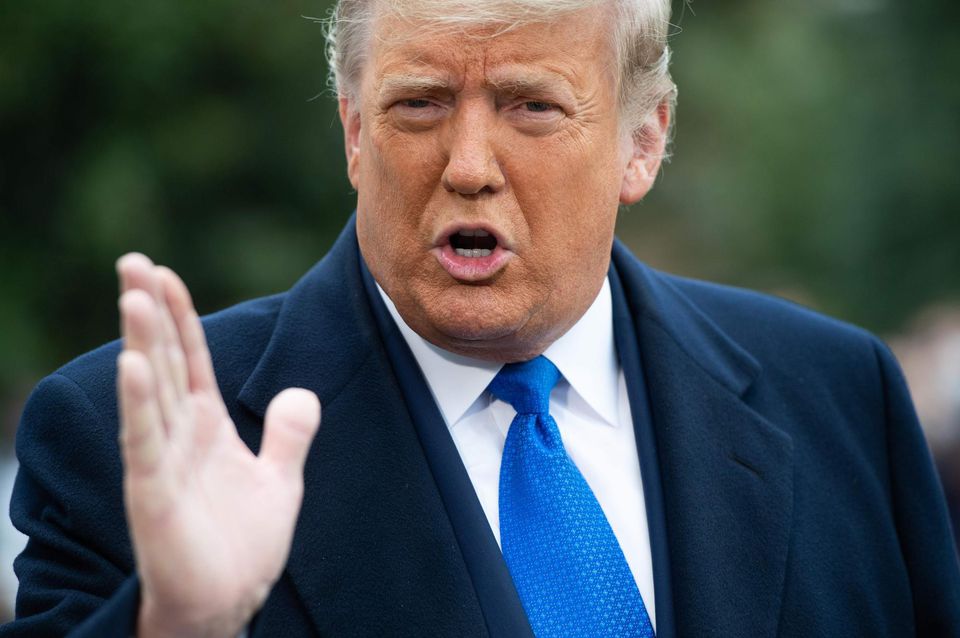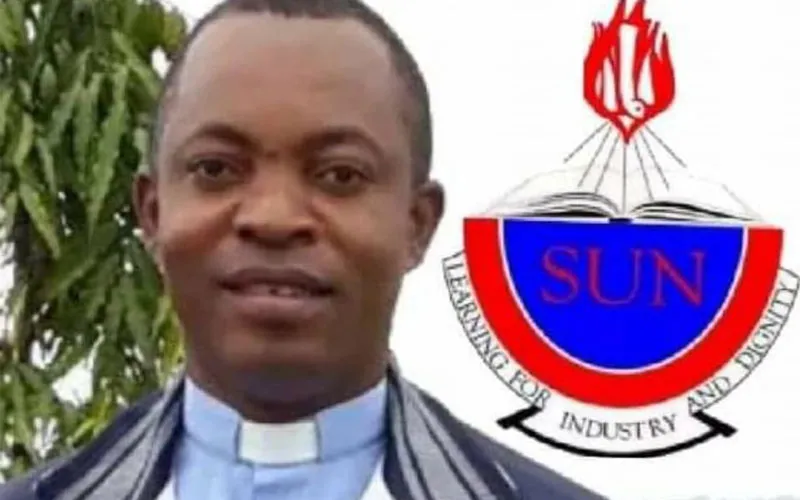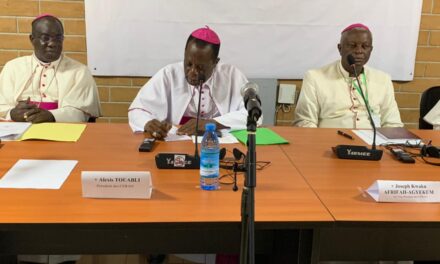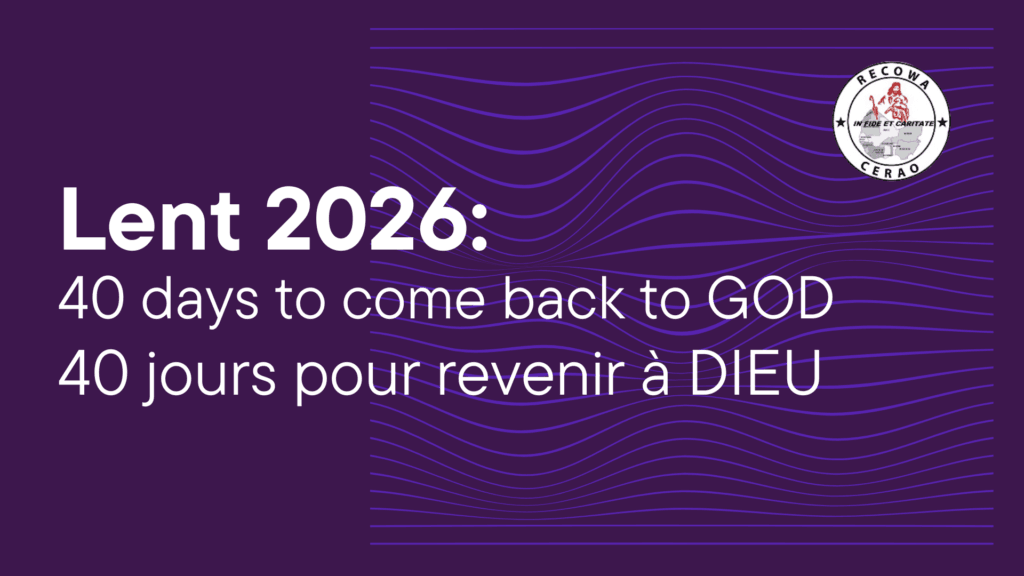 INAUGURATION OF THE RECOWA PEACE COMMITTEE
INAUGURATION OF THE RECOWA PEACE COMMITTEEAddress of the President of RECOWA at the
Resource Centre of the Catholic Secretariat of Nigeria, Durumi, Abuja, 12th April 2018
Your Excellency, Jean Claude Brou, The President of the ECOWAS Commission,
Your Excellency, Geoffrey Onyema, Minister of Foreign Affairs of the Federal Republic of Nigeria,
Your Excellences, the Ambassadors of the ECOWAS countries to the Federal Republic of Nigeria,
Your Eminence, Arlindo Cardinal Futardo Gomes, Bishop of Praia Santiago,
Your Eminence, John Cardinal Onaiyekan, Archbishop of Abuja,
Your Excellency Antonio Filipazzi, Apostolic Nuncio in Nigeria and Holy See Observer to ECOWAS,
Your Excellency, Lucius Ugorji, The RECOWA Chairman of Justice and Peace Commission,
Distinguished invited guests,
Dear Brothers and Sisters,
GREETINGS AND COMMENDATION
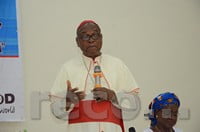 I bring you warm greetings of peace and love on behalf of the leadership and the entire lay faithful of the Association of the Catholic Bishops’ Conferences of West Africa. We are very honoured to have you here, at the Resource Centre of the Catholic Secretariat of Nigeria.
I bring you warm greetings of peace and love on behalf of the leadership and the entire lay faithful of the Association of the Catholic Bishops’ Conferences of West Africa. We are very honoured to have you here, at the Resource Centre of the Catholic Secretariat of Nigeria.
The Cardinals, Archbishops, Bishops and indeed our entire communities across West Africa express our deep and heartfelt gratitude to you our dear invited dignitaries for gracing this inauguration ceremony of the RECOWA Peace Committee (REPCO) with your presence. Your presence here is, indeed, a sign of the good collaboration between the political and the religious orders in our common pursuit for justice, peace, stability and the development of our people.
BRIEF HISTORY OF RECOWA
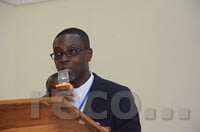 Until 2007, the Catholic Bishops of West Africa had two separate bodies based on two linguistic groups: English and French. They were the Association of Episcopal Conferences of Anglophone West Africa (AECAWA 1977) and Conférence Episcopale Régionale de l’Afrique de l’Ouest (CERAO 1963). Convinced of the necessity of a greater regional integration and organic pastoral solidarity transcending the linguistic and historical differences, the Bishops of the Anglophone, Francophone and Lusophone West Africa met in Abuja, Nigeria in December 2007, where it was decided that, we would create an overarching body, that would enable us work together in supporting the development and progress of our nations. After all, the people are the same and the problems facing the region are also the same. Following sustained discussions, it was finally decided that these bodies relinquish their identities and merge into one. So, the Anglophone Episcopal Conference of West Africa, (AECAWA), the Francophone and Lusophone Conférence Episcopale de l’Afrique de l’Ouest (CERAO) merged and formed the Association of Episcopal Conferences of West Africa, AECOWA. This was ratified at the final plenary of both bodies in Banjul, The Gambia in September 2009 and implemented at the feet of Our Lady Queen of Peace in the Basilica of that name in Yamoussoukro, (Côte d’Ivoire), in January 23rd – 29th 2012. This body meets once in three years and rotates the meetings around the region. It has eight Episcopal Commissions with different Committees which address different topics and themes of pastoral and social relevance to the Catholic Church in the region.
Until 2007, the Catholic Bishops of West Africa had two separate bodies based on two linguistic groups: English and French. They were the Association of Episcopal Conferences of Anglophone West Africa (AECAWA 1977) and Conférence Episcopale Régionale de l’Afrique de l’Ouest (CERAO 1963). Convinced of the necessity of a greater regional integration and organic pastoral solidarity transcending the linguistic and historical differences, the Bishops of the Anglophone, Francophone and Lusophone West Africa met in Abuja, Nigeria in December 2007, where it was decided that, we would create an overarching body, that would enable us work together in supporting the development and progress of our nations. After all, the people are the same and the problems facing the region are also the same. Following sustained discussions, it was finally decided that these bodies relinquish their identities and merge into one. So, the Anglophone Episcopal Conference of West Africa, (AECAWA), the Francophone and Lusophone Conférence Episcopale de l’Afrique de l’Ouest (CERAO) merged and formed the Association of Episcopal Conferences of West Africa, AECOWA. This was ratified at the final plenary of both bodies in Banjul, The Gambia in September 2009 and implemented at the feet of Our Lady Queen of Peace in the Basilica of that name in Yamoussoukro, (Côte d’Ivoire), in January 23rd – 29th 2012. This body meets once in three years and rotates the meetings around the region. It has eight Episcopal Commissions with different Committees which address different topics and themes of pastoral and social relevance to the Catholic Church in the region.
During our sixth Standing Committee meeting in 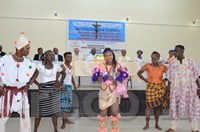 January 2018, held in Praia (Cape Verde) and following one of our resolutions in Yamoussoukro, the Bishops created the RECOWA Peace Committee (REPCO) which functions under the umbrella of the Episcopal Commission for Justice, Peace and Development. It pursues among other goals the following objectives:
January 2018, held in Praia (Cape Verde) and following one of our resolutions in Yamoussoukro, the Bishops created the RECOWA Peace Committee (REPCO) which functions under the umbrella of the Episcopal Commission for Justice, Peace and Development. It pursues among other goals the following objectives:
- The prevention, mediation, resolution and transformation of conflicts in the region.
- The promotion of justice, peace, democracy and stability through good governance.
SOME CHALLENGES OF OUR REGION
We are not unaware of some significant challenges within our region which need to be addressed. In fac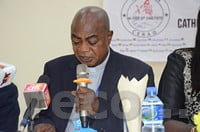 t, the Presidential Council of RECOWA presented to the former President of Liberia, Mrs. Ellen Sirleaf JOHNSON, the then President of the Assembly of ECOWAS Heads of State some of these challenges during an audience with her in Liberia on April 2017. These include:
t, the Presidential Council of RECOWA presented to the former President of Liberia, Mrs. Ellen Sirleaf JOHNSON, the then President of the Assembly of ECOWAS Heads of State some of these challenges during an audience with her in Liberia on April 2017. These include:
➢ Political transition in West Africa often with a great degree of instability;
➢ Danger of youth unemployment resulting in migration that has transformed the Sahara Desert and the Mediterranean into cemeteries;
➢ Religious intolerance that has turned into extremism and terrorism;
➢ Nomadic herdsmen often associated with acts of rape, murder, destruction of farms, abductions and conflicts.
➢ Land grabbing and its consequences of unemployment, migration and rise of poverty among our populations.
A cursory glance at the political context of our region reveals that there are cases of poor democratic transitions due to many factors such as non-respect for the rule of law, weak institutions, shrinking space for political participation/engagement with constant human rights violations and tortures; the arrest of persons and the abuse of their rights especially those in the opposition parties, Civil Society Organizations and Faith Leaders and also the violation of treaties and laws which all countries have registered acceptance and commitment.
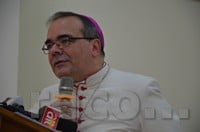 The political tensions caused by the manipulation of constitutions and the electoral processes weaken the people’s participation in governance while politicians take advantage of ethnic and religious divisions to achieve their personal desires. Elections cost unnecessarily so much due to bribery of voters and post-election legal tussles.
The political tensions caused by the manipulation of constitutions and the electoral processes weaken the people’s participation in governance while politicians take advantage of ethnic and religious divisions to achieve their personal desires. Elections cost unnecessarily so much due to bribery of voters and post-election legal tussles.
When, as shepherds of our people, we draw the attention of our leaders to these issues, we are not doing politics, but because as Pope Benedict XVI pointed out in his Encyclical Deus Caritas Est, “the just ordering of society and the State is a central responsibility of politics [1], and as Pope Paul VI once said, “development is the new name of peace”[2]. This shows that social questions tie all men and women, irrespective of religion, together in every part of the world [3]. All that we want is peace, not war, the type of global peace that His Holiness, Pope Francis, continues to advocate today, namely, peace without borders. As religious leaders we cannot but act and react against everything that dehumanizes, impoverishes, alienates and maims man. We are concerned whenever and wherever a human being suffers, struggles and dies; wherever injustice crystallizes into violence; wherever man is less man and aspires to be more man. We do not want to live behind a curtain of silence. For this reason we need to meet the political leaders from time to time for joint reflections and actions. This is the raison d’être of the RECOWA Peace Committee.
PROACTIVE MEASURES
 At the RECOWA level we have therefore considered the need for a regional structure for the prevention, mediation, resolution and transformation of conflict; a regional liaison office to collaborate with the ECOWAS Commission and relevant institutions and also a body to participate in election observation.
At the RECOWA level we have therefore considered the need for a regional structure for the prevention, mediation, resolution and transformation of conflict; a regional liaison office to collaborate with the ECOWAS Commission and relevant institutions and also a body to participate in election observation.
These structures will work under the umbrella of the Justice and Peace Commission; and we shall count on the various National/Inter-Territorial Justice Development and Peace Commissions to start the work at each country level. We have a well organised network that runs through the region i.e. the National episcopal Conferences, the Dioceses, the parishes and outstations. We are putting all these at the disposal of all people of goodwill so that we can build a region where the unwelcome sounds of bombs and Kalashnikovs will be something of the past. Peace, not war!
THE RECOWA PEACE COMMITTEE
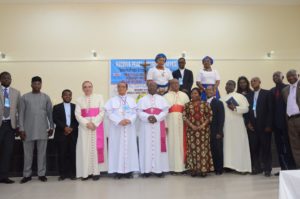 The RECOWA Peace Committee (REPCO) is composed of three Cardinals representing the three linguistic zones: Anglophone, Francophone and Lusophone as well as Bishops, Priests and Lay persons with the necessary expertise. With this body, the Church in West Africa offers a helping hand and engages the political, social and economic leaders of our region to address the above-mentioned challenges and to bring about justice and peace, stability and development.
The RECOWA Peace Committee (REPCO) is composed of three Cardinals representing the three linguistic zones: Anglophone, Francophone and Lusophone as well as Bishops, Priests and Lay persons with the necessary expertise. With this body, the Church in West Africa offers a helping hand and engages the political, social and economic leaders of our region to address the above-mentioned challenges and to bring about justice and peace, stability and development.
We are determined to work with all religious communities and other bodies to bring about lasting peace in our respective countries, for, “Blessed are the peacemakers for they shall be called children of God” ( Matthew 5:9). The presence of the President of ECOWAS Commission and the Ambassadors of the various countries within the West African Region who are here to grace this occasion bode well and assure all of us in RECOWA of their help and togetherness in carrying out this mission of peace which is a sine qua non for any meaningful progress in the region.
On this note I wish to thank you all for taking time out of your very busy schedules to be present here for this official inauguration of the RECOWA Peace Committee. I reiterate my sentiments of gratitude to Your Eminencies the Cardinals, the Archbishops, the priests and religious and the Lay Faithful of our Region here present. We appreciate the Staff of the Catholic Secretariat of Nigeria ably led by Very Reverend Ralph Madu, Secretary General of the CSN; the representative of CAFOD in Nigeria, Mr. Kelechi Emeh,
for their collaboration and support; Fr. Joseph Aka the Secretary General of RECOWA, and indeed all those who collaborated to put this event together.
Finally, I wish to express my heartfelt gratitude to you, Your Excellency, the President of the ECOWAS Commission, Your Excellency, the Minister of Foreign Affairs of the Federal Republic of Nigeria, Your Excellences – Ambassadors of the ECOWAS countries to the Federal Republic of Nigeria, Your Eminences, Your Excellency the Apostolic Nuncio in Nigeria/Holy See Observer to ECOWAS, Your Excellency, the RECOWA Chairman of Justice and Peace. Permit me please to greet also the Director of Research and Documentation of the Plateau State Government, the Director of the Plateau State Peace Agency and the Director of the Dialogue, Reconciliation and Peace Centre in Jos, who came with me as a support to this peace initiative.
I humbly invoke God’s blessings on us all, our families and institutions and the countries we represent. Thank you for your very kind attention.
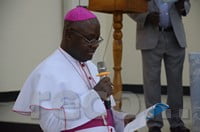
Most Rev. Ignatius A. KAIGAMA,
Archbishop of Jos Nigeria President of RECOWA/CERAO
[1]De Civitate Dei, IV, 4: CCL 47, 102. In Benoît XVI, Deus Caritas Est,
[2]Paul VI, Populorum Progressio (March 27, 1967), 75
[3]Cf. Paul VI, Ibid,
- CATHOLIC ARCHBISHOP IN GHANA HAILS POPE LEO XIV AS GOD’S GIFT - 23 mai 2025
- POPE LEO XIV TO APPROVE CANONIZATIONS - 22 mai 2025
- THE EVOLUTION OF PAPAL TRANSPORTATION - 20 mai 2025



